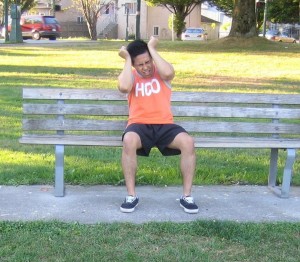Even though it does not cause imminent death, dementia remains as one of the most devastating medical conditions that can affect senior citizens because of its debilitating symptoms which can make affected individuals more prone to self-inflicted injuries and other accidents. This is why knowing how to manage these symptoms through community care CPR and first aid is highly beneficial for everybody, especially those who are currently taking care of their elderly. Here are some of the symptoms of dementia and how they can be managed by knowing first aid and CPR.
Aggressive behavior towards self and others

Aggression in dementia is caused by a myriad of factors which range from psychological causes such as depression, anxiety and self-image issues to physiological factors such as pain, hormonal imbalance and inability to communicate. Treatment and management of aggressive behavior include hormone replacement therapy and administration of sedatives and other
anti-psychotic medications. However, some of these treatments have side-effects which can make them more prone to accidents and other medical conditions such as apnea or difficulty of breathing. Through proper community care CPR and first aid, the side-effects of these treatments can be managed by knowing how to establish proper airway, breathing and circulation. First aid and CPR can also help manage direct aggression by knowing how to treat self-inflicted injuries.
Pain
Pain is a common problem among aging adults due to the inevitable deterioration of the body which leads to joint pains, muscle spasms and bone problems. First aid treatments for pain include the administration of appropriate pain medications and other non-pharmacological ways to manage the pain. These non-pharmacological ways include applying hot and cold compress, proper body positioning and engaging in diversionary activities.
Inability or unwillingness to talk
Aside from depression and other psychological conditions, lack of muscle control and energy due to the degradation of the body can make it harder for individuals who are afflicted with dementia to talk or to express themselves through verbal cues. By knowing how to do an appropriate and thorough physical assessment through first aid, caregivers and other individuals can learn how to interpret non-verbal cues which can make it easier for them to understand what the afflicted individual is trying to say. This can help them manage the discomfort or pain that the afflicted individual is trying to communicate which can help lessen or avoid aggressive behavior and other psychological conditions or problems.
[youtube url=”http://www.youtube.com/watch?v=fdc0HBONuuA” width=”400″ height=”220″]